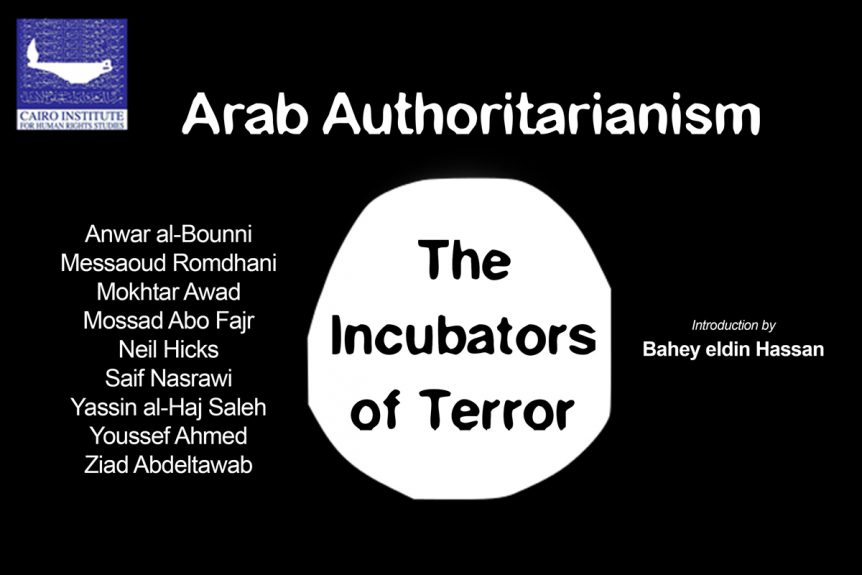The Cairo Institute for Human Rights Studies (CIHRS) released a new book titled Arab Authoritarianism: The Incubators of Terror examining the link between the authoritarian policies and practices of most Arab governments and the proliferation of terrorism in the region. The chapters of the book are based on papers presented at an expert workshop, organized by CIHRS and Human Rights First (HRF), held in New York in September 2015 on the margins of the United Nations General Assembly Leaders’ Summit on Countering ISIL and Violent Extremism.
In his introduction to the book, Bahey Eldin Hassan, Director of CIHRS, explained that “The world can no longer afford the luxury of confronting terrorism through a flawed strategy based upon a misdiagnosis of the region’s ills.… We can no longer ignore the relationship between the perpetration of human rights and humanitarian crimes committed by some governments and the rise of radicalization and the proliferation of terrorism.”
Despite their counterterrorism rhetoric, Arab governments remain culpable for the current plight in their countries. They have shut down public spaces, failed to reform dysfunctional institutions and policies, systematically discriminated against minorities, and committed mass atrocities against their civilian populations. In response to peaceful protests in Syria, President Bashar al-Assad released jihadis from prison with the intention of militarizing the uprising. The Supreme Council of Armed Forces in Egypt adopted a similar strategy in 2011 when it released imprisoned jihadis to disrupt the liberal movement.
Arab Authoritarianism: The Incubators of Terror features experts, academics, and human rights practitioners from across the Middle East and North Africa region who dissect the contexts and root causes of terrorism in Syria, Iraq, Egypt, and Tunisia and offer different approaches to countering terrorism and violent extremism. They challenge the conventional security-only approach that only inflames radicalization in light of rampant political, economic, and social grievances across the Arab region; creating a volatile context further exacerbated by repressive and marginalizing policies.
As the Arab region experiences the worst humanitarian crisis of the modern era, the authors of the book explain that human rights and the rule of law should be respected not only due to ethical and international legal obligations; but moreover, due to their central importance in addressing terrorism holistically and effectively. In his concluding chapter, Neil Hicks, Director of Human Rights Promotion at HRF, explains that:
“Promoting good governance, the rule of law, and respect for human rights are not constraints but essential tools in countering violent extremism. To effectively combat violent extremism all governments must tackle social and economic marginalization, implement human rights protections for all their people, and stamp out the spread of extremist ideologies that incite hatred and violence.”
The book can be accessed online through this link
Share this Post

